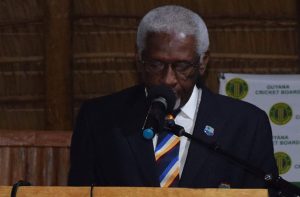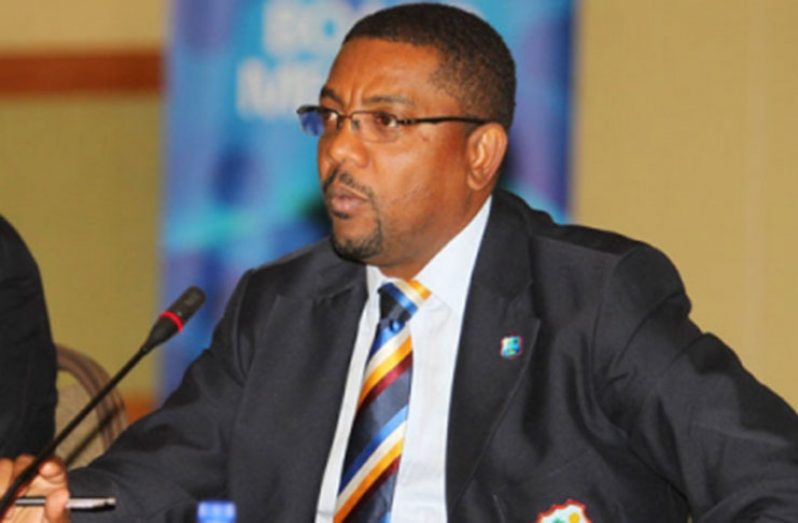– Admits that the decline in performance of our senior teams in ODI and Test cricket has been slow and painful
DIRECTOR of the West Indies Cricket Board (WICB) and Chairman of the Barbados Pride cricket franchise Conde Riley admitted that the WICB was aware that amateurs don’t beat professionals, adding that the decline in performance of the senior teams in One Day International and Test cricket has been slow and painful.Riley made the announcement during his feature address at the Guyana Cricket Board’s (GCB) 2016 Awards ceremony Thursday night at the Umana Yana.
““The board was aware that amateurs don’t beat professionals and whilst the richer members of the ICC had moved to professionalize their game decades before us, we were stuck by a combination of factors.
“Over the last 10 years, following the domination of the Clive Lloyd and Vivian Richards’ led teams, the decline in performance of our senior teams in ODIs and Test cricket has been slow and painful,” Riley pointed out.

Perhaps no cricket team in history is as revered as the West Indies side of the 1980s. From 1980 to 1995, the team did not lose a single Test series. The Caribbean cocktail of ferocious fast bowling and aggressive batting resonated far beyond the field.
But seldom does one get to witness a fall as dramatic as that of the West Indies cricket team in international cricket, or for that matter, in any walk of life. The West Indies were so dominant in the 70’s and 80’s that all the other teams struggled to compete at the same level.
The golden era ended on May 3, 1995, when Australia crashed through in Jamaica for a series win.
But critics agreed Caribbean cricket lost its way with failures off the field. Most fingers are pointed at the West Indies Cricket Board.
However, Riley blamed part of the decline of West Indies cricket to a Collective Bargaining Agreement (CBA) which was aimed at not only giving the WI players a voice but also making them the consummate professionals.
“Successive presidents and boards were stifled by a Collective Bargaining Agreement which was designed at the time when Sir Wesley Hall was president, to give players a voice in their professional management through the West Indies Players Association (WIPA).”
“The WICB finally got approval to renegotiate the old Collective Bargaining Agreement with WIPA and moved swiftly to spread the 25 per cent of its revenues which is set aside for players’ salaries from 15 players to an additional 90 players and we also brought 10 ladies on board,” Riley stated.
He added “It suited the then leaders of WIPA to hang on to an outdated document that should have been renegotiated many years before the High Court in Trinidad said enough is enough and ruled that a new CBA be negotiated between the WICB and WIPA.
Riley also pointed out that the advent of T20 cricket with its large sums of money brought new challenges for the WICB and its territorial shareholders, is also a contributing factor for the West Indies cricket Test and One-Day teams slowly moved down the ICC rankings to the bottom of the table.



.jpg)








